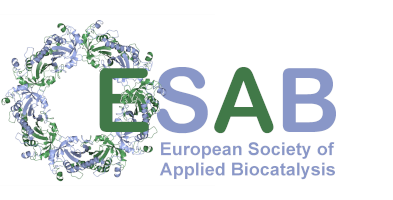Mutexa: An “Intelligent” Computational Ecosystem for Biocatalysis
Abstract
Predicting enzyme variants with improved functions is a daunting challenge, because the sheer number of possible mutants exceeds the number of stars in the universe. The goal of my research lab is to create a platform forin silicoenzyme engineering. To achieve this goal, my lab has been building a computational ecosystem called Mutexa (means “Amazon Alexa for Mutants”). Mutexa consists of three core-components, including 1) a database that integrates enzyme structure and function data (e.g., IntEnzyDB), 2) software tools for high-throughput construction and modeling of enzymes (e.g., EnzyHTP), and 3) scoring functions to predict the impact of mutations on enzyme catalysis (e.g., EnzyKR). In this talk, I will discuss the development of a relational database–IntEnzyDB, which stores clean and tabulated structural and functional data for enzyme. I will compare the database architecture and efficiency performance of IntEnzyDB to traditional object-oriented databases. I will also talk about the application of the database for statistical analysis and data-driven modeling.
References
[1] Zhongyue Yang*,Qianzhen Shao, Yaoyukun Jiang, Christopher Jurich, Xinchun Ran, Reecan Juarez, Bailu Yan, Sebastian Stull, Anvita Gollu, Ning Ding,Mutexa: A Computational Ecosystem for Intelligent Protein Engineering.J. Chem. Theory Comput.In Revision(2023).https://doi.org/10.26434/chemrxiv-2023-2cvbs.
About the Speaker(s)
 Dr Zhongyue John Yangis the SC Family Dean’s Faculty Fellow, Assistant Professor of Chemistry, Chemical and Biomolecular Engineering at Vanderbilt University. He graduated from the Po-Ling Class of Chemistry at Nankai University in 2013, received his Ph.D. in Chemistry with Ken Houk at UCLA in 2017, and did his postdoc inthe Department of Chemical Engineering with Heather Kulik at MIT until 2020. Since fall 2020, he has started his independent research group at Vanderbilt. His research interests lie in the development and application of computational tools for proteinengineering. Since 2020, his group has published 15 research articles on the development of Database, Molecular modeling software, and predicting scoring functions for high-throughput computational protein engineering. He is a recipient of NIH Maximizing Investigators’ Research Award in 2022 and Robin Hochstrasser Young Investigator Award (Honorary Mention) in 2022. The Yang group’s development of integrated enzymology database (IntEnzyDB) was featured by the American Chemical Society Editor’s Choice award as the single paper selected from >150 research articles across 64 peer-reviewed journals.
Dr Zhongyue John Yangis the SC Family Dean’s Faculty Fellow, Assistant Professor of Chemistry, Chemical and Biomolecular Engineering at Vanderbilt University. He graduated from the Po-Ling Class of Chemistry at Nankai University in 2013, received his Ph.D. in Chemistry with Ken Houk at UCLA in 2017, and did his postdoc inthe Department of Chemical Engineering with Heather Kulik at MIT until 2020. Since fall 2020, he has started his independent research group at Vanderbilt. His research interests lie in the development and application of computational tools for proteinengineering. Since 2020, his group has published 15 research articles on the development of Database, Molecular modeling software, and predicting scoring functions for high-throughput computational protein engineering. He is a recipient of NIH Maximizing Investigators’ Research Award in 2022 and Robin Hochstrasser Young Investigator Award (Honorary Mention) in 2022. The Yang group’s development of integrated enzymology database (IntEnzyDB) was featured by the American Chemical Society Editor’s Choice award as the single paper selected from >150 research articles across 64 peer-reviewed journals.
